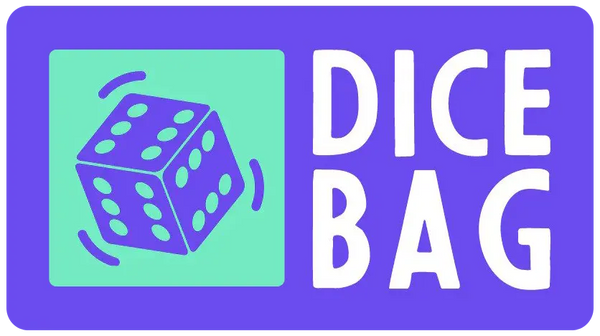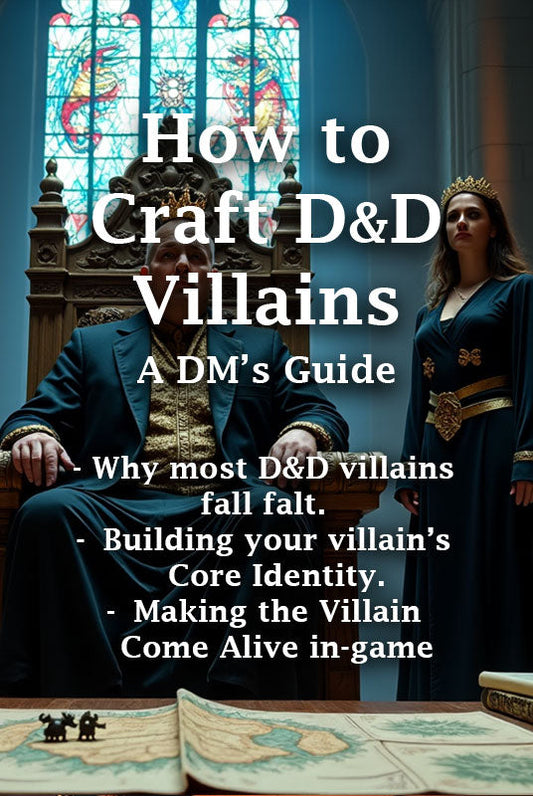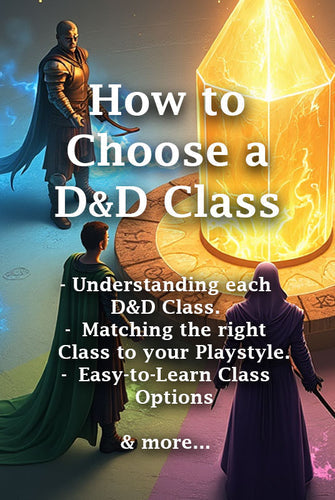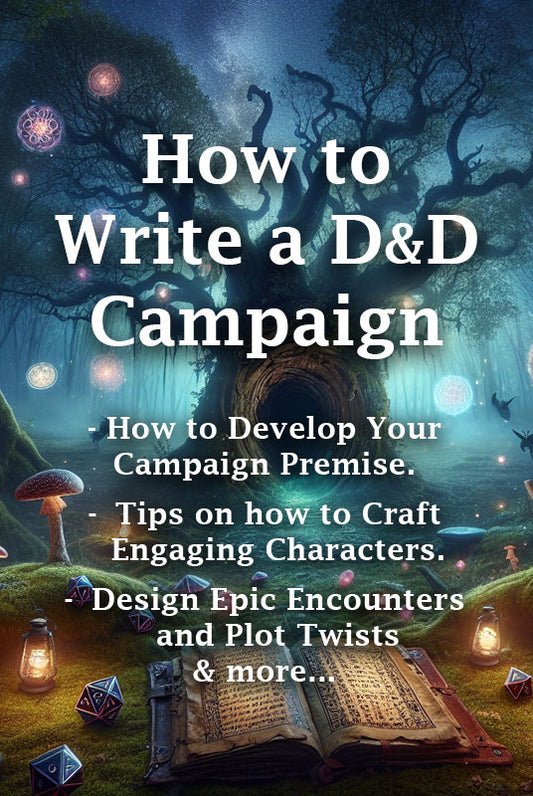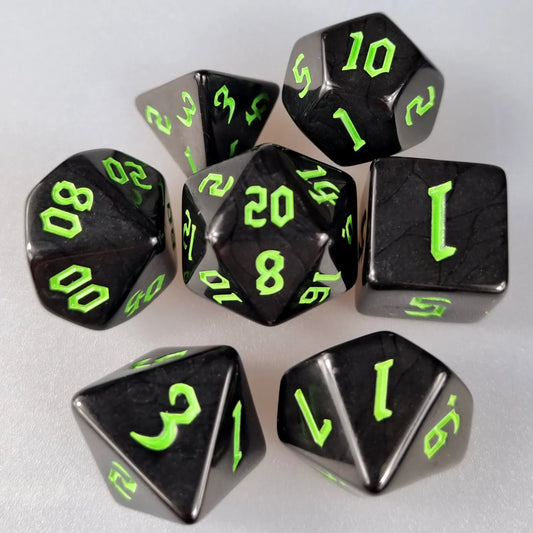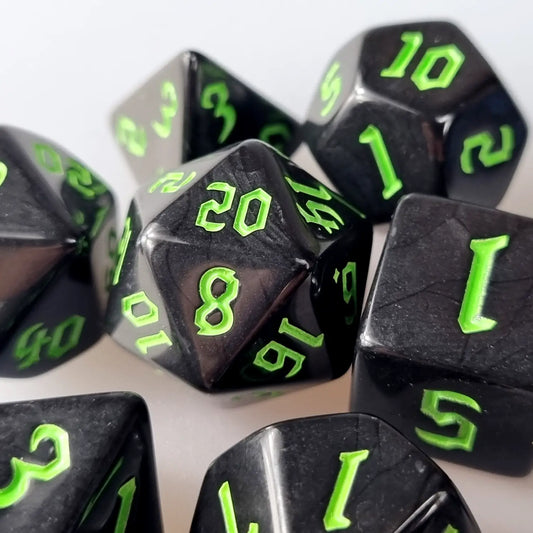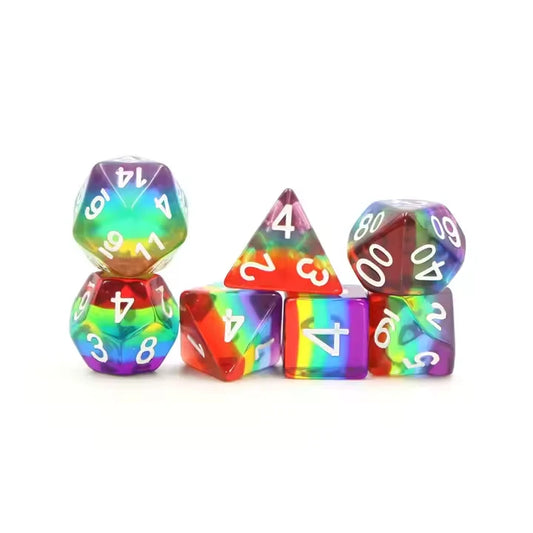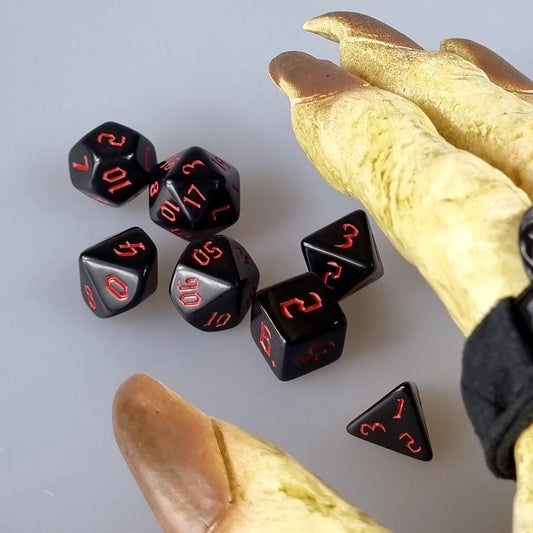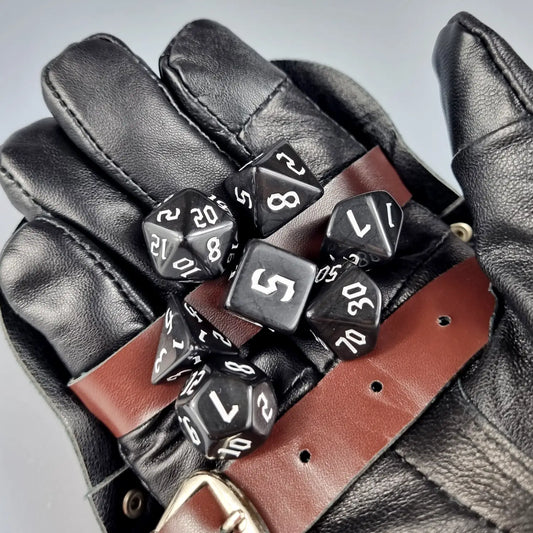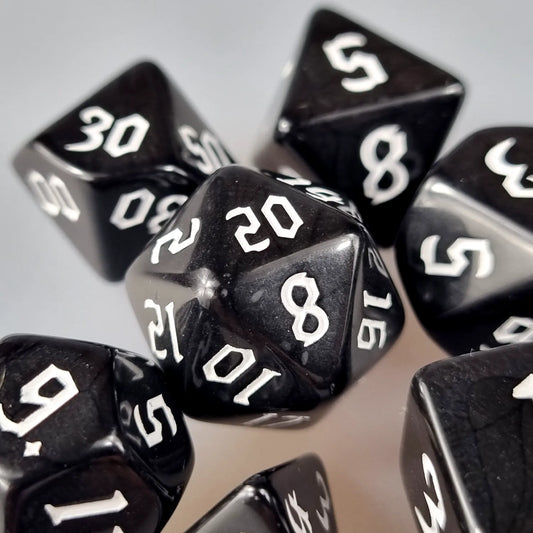
Have you spent hours staring at the DnD classes list, unsure which character to create? You're not alone. The choice overwhelms the majority of new players with its many distinct classes and countless subclasses.
Your first Dungeons & Dragons character should spark excitement, not anxiety. Each class brings its own abilities, playstyles, and roles to your party. Your gaming experience takes shape through your choice - whether you see yourself casting powerful spells as a Wizard, rushing into battle as a Fighter, or supporting your companions as a Cleric.
Here's the best part: you don't need extensive experience to choose well. We'll guide you through everything about DnD classes, from simple mechanics to advanced strategies. Soon you'll discover the perfect class that fits your playstyle and party role.
Want to find your ideal character class? Let's go!
Understanding D&D Class Categories
You need to learn the key categories that shape how different DnD classes function to understand them better. These categories help you narrow down your choices based on your playstyle priorities and experience level.
Melee vs Spellcasting Classes
DnD classes are divided between Melee and spellcasting characters. Melee classes like Fighters and Barbarians excel in physical combat, while spellcasters such as Wizards and Sorcerers manipulate magical forces. This division affects gameplay by a lot. Martial classes can maintain their effectiveness throughout long adventuring days. Spellcasters must carefully manage their magical resources.
Your choice between these categories depends on whether you like:
- Direct, straightforward combat approaches
- Complex spell management and tactical options
- Consistent performance versus burst power
- Physical prowess or magical versatility
Simple vs Complex Classes
Different classes vary by a lot in complexity, which affects how easy they are to learn and master. Fighters and Barbarians rank among the easiest to play. Sorcerers and Wizards need more strategic planning.
Think about these factors when evaluating class complexity:
- Resource Management: Spellcasters must track spell slots and magical abilities
- Combat Options: Some classes give you more tactical choices per turn
- Feature Interactions: Complex classes often have abilities that work together uniquely
- Learning Curve: Simpler classes let you focus on game mechanics first
Hybrid Class Options
Hybrid options let you enjoy the best of both worlds if you can't choose between different class styles. Classes like Paladin mix martial prowess with divine spellcasting. Rangers combine wilderness expertise with magical abilities. These hybrid classes create unique gameplay experiences but require you to understand both combat and spellcasting mechanics.
Modern DnD gives you several ways to create hybrid characters:
- Half-casters: Classes like Paladins and Rangers that blend combat skills with limited spellcasting
- Third-casters: Subclasses that add magical abilities to primarily martial classes
- Multiclassing: Taking levels in multiple classes to create custom combinations
Hybrid classes offer versatility but often trade raw power in any single area for broader capabilities. Your choice should match your playstyle priorities and your party's needs.
Matching Classes to Your Playstyle
Your perfect DnD class choice depends on how you like to play the game. Players who enjoy tactical combat, rich storytelling, or helping their fellow adventurers will find a class that matches their priorities.
Combat-Focused Players
Players who love being in the thick of battle have several excellent class options. Fighters and Barbarians lead the pack as top martial classes that deliver consistent damage and maintain a strong battlefield presence. These classes come with straightforward but powerful combat mechanics - perfect for players who like taking direct action in conflicts.
Combat-oriented classes give you:
- Powerful damage output through weapon expertise
- Strong defences for frontline combat
- Tactical options to control the battlefield
- Combat-focused resource management
Roleplay-Oriented Players
Players who enjoy character interactions and storytelling will find certain classes naturally boost their roleplaying opportunities. DnD builds on three main pillars: Combat, Exploration, and Roleplay. Classes that excel in Charisma-based skills shine in social situations and reward players who dive deep into their characters.
The best roleplay-focused classes come with features that give you:
- Better social skills for persuasion and deception
- Rich character development paths
- Adaptable abilities that support creative solutions
- Story-driven mechanics that push you to interact
Utility and Support Players
Support players get their satisfaction from helping the party succeed in different ways. While healing remains a classic support role, utility covers much more ground. Artificers stand out as one of the top utility classes, built specifically to help their party through various magical breakthroughs.
Support classes help the party in several ways:
- Direct Support: Healing, strengthening allies, and clearing negative effects
- Tactical Support: Controlling the battlefield and weakening enemies
- Resource Support: Crafting items and providing magical help
- Skill Support: Boosting allies' success in various tasks
Note that you can adapt any class to match your preferred playstyle. The secret lies in picking a class whose core mechanics appeal to how you want to experience the game.
Evaluating Class Mechanics
The mechanical aspects of DnD classes help players make choices that match their gaming priorities. Let's take a closer look at the elements you should think over when evaluating different classes.
Core Class Features
Each DnD class has signature abilities that shape its gameplay style. These core features shape how your character performs in different situations and what sets them apart. You should think over:
-
Combat Effectiveness: Damage output and survival capabilities
-
Utility Options: Non-combat abilities and problem-solving tools
-
Party Support: Ways to help teammates succeed
-
Character Development: How features grow with your level
Resource Management
Your character's resource management can determine success or failure. Classes use resources differently, and understanding these systems is vital to success.
Resource Types to Think Over:
- Spell slots for casters
- Special abilities with limited uses
- Hit points and healing capabilities
- Class-specific resources (like a Monk's Ki points)
Success in resource management comes from conservation rather than constant use. Experience shows that keeping resources at day's end isn't wasteful - using more than needed wastes resources.
Learning Curve Considerations
Classes vary in complexity, which affects how quickly you can become skilled at them. Spellcasting classes need more study and attention since each spell follows specific rules.
Class Complexity Breakdown:
- Low Complexity: Fighter, Rogue - Simple mechanics and fewer resources to track
- Medium Complexity: Barbarian, Cleric - Mix of special abilities and simple combat
- High Complexity: Wizard, Sorcerer, Warlock - Multiple systems and complex choices
Your available time for learning mechanics should guide your class choice. Complex classes offer more options but need more dedication to work well. Druids must track both spells and Wild Shape creature stats, which makes them challenging for newcomers.
Note that complexity doesn't equal effectiveness - skilled Fighters can match Wizards in impact. Success comes from picking a class with mechanics that suit your comfort level and learning time.
Choosing Based on Party Role
Your DnD adventures need a well-balanced party to succeed. The right class choice should match your playstyle and help your group win. Let me break down the different party roles for you.
Tank and Frontline Fighters
Your team needs tough defenders who can take hits and shield their weaker teammates. Paladins, Fighters, and Barbarians make great tanks and stand between danger and their friends. These battlefield warriors bring unique strengths:
- High armour class and hit points
- Knowing how to keep enemies focused on them
- Defensive abilities to protect allies
- Tactical positioning skills
Aspiring tanks should ask themselves "How can I keep my friends safe?". This mindset helps you make the most of your defensive skills while you retain control of the battlefield.
Damage Dealers and Strikers
Damage dealers and strikers excel at taking down threats quickly. These specialists focus on eliminating key targets through concentrated attacks. Rogues, Rangers, and Warlocks shine as strikers by mixing speed with accurate strikes.
Good damage dealers need:
- High manoeuvrability
- Strong single-target damage
- Knowing how to use tactical advantages
- Flexibility in combat positioning
Strikers work as "the hammer to the Tank's anvil" and look for chances to deal critical damage. Tanks and strikers create a powerful combat duo when they work together.
Support and Control Specialists
Support characters play a vital role that goes way beyond healing. Clerics, Bards, and some Druids thrive in support roles. These characters can change battles in many ways:
Support specialists can:
- Improve their allies' abilities
- Control battlefield positioning
- Cast useful utility spells
- Reduce enemy threats
Support roles might seem less exciting since they focus on helping others instead of dealing damage. But no one can deny how much they affect the party's success.
These roles aren't strict categories - many characters can fill multiple roles based on their abilities and growth. A Paladin works well as both tank and support, while a Wizard can deal damage and control the battlefield.
Pick a class that fits both the party's needs and your preferred style of play. Players who enjoy their roles make the best team members. DnD shines because it lets you arrange your party in creative ways.
Beginner-Friendly Class Options
Your DnD adventure doesn't need to feel daunting. Let's look at some beginner-friendly classes and builds that make learning the game both easy and fun.
Easy-to-Learn Classes
New DnD players will find certain classes easier to grasp while still being effective in the game. The Fighter makes an excellent first choice with simple mechanics and a powerful Action Surge feature. Players wanting to try magic might prefer the Warlock, which has fewer spell slots to manage.
Your best beginner-friendly options include:
- Barbarian: Great survival odds with rage mechanics and high hit points
- Fighter: Simple combat abilities that leave room to grow
- Ranger: Good mix of combat and basic spellcasting
- Monk: Easy-to-grasp martial arts mechanics
Common Beginner Mistakes to Avoid
Creating your first character comes with potential pitfalls that might affect your fun. Players often pick a class without looking at their party's makeup - too many similar classes can throw off the balance.
Weapon choice matters too. Your character's weapons should match their abilities - a flail won't work well with high Dexterity.
Spellcasters sometimes pick only damage spells. Fireballs are fun, but utility spells often prove more useful in different situations. Every expert player started as a beginner, so ask questions whenever you're unsure.
Learn your core abilities before diving into complex combinations. New players who try to remember everything at once might slow down combat and make mistakes. Start with your basic features and add more advanced abilities as you get comfortable.
Players interested in magic but worried about its complexity might want to start with a half-caster class like the Ranger or Paladin. These classes mix physical combat with some spellcasting to give you a gentle introduction to magic.
Your first character doesn't need perfection. Just learn the basics and enjoy playing with your group. Experience will naturally help you understand advanced options and optimisation strategies better.
Advanced Class Selection Tips
After learning the simple rules of DnD classes, you can discover advanced character building strategies that boost your gameplay experience. These techniques will help you build more sophisticated and effective characters that fit into compelling stories.
Multiclassing Potential
Multiclassing unlocks powerful new options to optimise your character, but you should know it's an optional rule that needs careful planning. The key benefits of multiclassing include:
- More versatility in combat roles
- Access to unique ability combinations
- Better survival capabilities
- More tactical flexibility
- Rich roleplay opportunities
Single-class characters work great too. The right time to think about multiclassing comes when you need to fill specific gaps in your character's abilities or create unique combinations that match your character concept.
Synergy with Races and Backgrounds
The 2024 Player's Handbook changed how ability scores work during character creation. Backgrounds now determine these bonuses instead of species. Racial abilities still play a vital role in class optimisation. Here's what to look for when matching races with classes:
- Natural abilities that work well with class features
- Racial bonuses that strengthen core mechanics
- Background skills that fit your role
- Cultural traits that deepen storytelling
- Ability score distributions that maximise potential
Humans adapt well to any class combination. This flexibility makes them perfect for experimental or unusual builds. Other races might give you more specific advantages - some species get Magic Resistance, making them stand out in certain roles.
Long-term Character Development
Your character grows beyond just gaining levels. Building a meaningful character arc means your choices affect both mechanical progress and story development. Character development in DnD works like sculpting - you start with rough shapes that become clearer through play.
Your long-term development plan should include both mechanical and story elements. Picking abilities that help other party members builds stronger character bonds. This team-focused approach often creates better gameplay experiences than just maximising individual power.
Some classes need more careful planning than others. Spellcasters must choose their spells wisely as they level up. Martial classes might focus on feat combinations that shine at higher levels. A balanced party makes a big difference, and with 5th edition's focus on subclasses, your archetype choice matters as much as your initial class.
Subclass choices can create powerful team dynamics. A College of Lore Bard pairs well with an Assassin Rogue - the Assassinate ability's automatic critical hit doubles the damage dice from Combat Inspiration.
Note that adaptability gives you an edge in DnD. Combat optimisation matters, but successful characters need tools for many situations. Your character should be ready to handle:
- Social interactions and diplomacy
- Exploration and investigation
- Combat and tactical situations
- Support and utility roles
Don't fall into the trap of focusing only on combat abilities. A well-rounded character needs tools for various challenges. The most memorable DnD moments often come from clever solutions rather than combat skills.
Your advanced character building choices should support both your game mechanics and your character's story. Whether you're creating multiclass combinations, matching races and classes, or planning future growth, make sure your decisions create both an effective character and a compelling story.
Summary
Your DnD class choice kicks off an exciting gaming experience. You can make smart decisions that match your priorities and boost your gameplay with the right knowledge about class categories, playstyles, and party roles.
DnD success comes from understanding game mechanics and telling great stories. The class you pick should feel natural and help develop your character's story. Each class is a chance to create unforgettable adventures, whether you choose a simple Fighter or dive into a complex Wizard.
New players should start with beginner-friendly options. You can try advanced combinations as you gain more experience. The best class lets you make meaningful contributions while having fun with your group. Your DnD experience starts here, and your class choice will shape all your future adventures.
FAQs
Q1. What are the main categories of D&D classes? D&D classes can be broadly categorised into martial and spellcasting classes. Martial classes like Fighters excel in physical combat, while spellcasters like Wizards manipulate magical forces. There are also hybrid options that combine elements of both, such as Paladins.
Q2. Which classes are best for beginners? For newcomers, classes with straightforward mechanics are ideal. The Fighter is an excellent starting point due to its simple yet effective combat abilities. Other beginner-friendly options include the Barbarian for high survivability, and the Ranger for a balanced mix of combat and limited spellcasting.
Q3. How do I choose a class that fits my playstyle? Consider your preferred gaming style. If you enjoy tactical combat, classes like Fighter or Barbarian might suit you. For those who love storytelling, charisma-based classes like Bard offer great roleplaying opportunities. If you prefer supporting your team, classes like Cleric or Artificer excel in utility and support roles.
Q4. Can I combine different classes for my character? Yes, through multiclassing. This advanced option allows you to mix abilities from different classes, enhancing versatility and creating unique character builds. However, it's an optional rule that requires careful consideration and is generally recommended for more experienced players.
Q5. How important is party composition when choosing a class? Party composition is crucial for a balanced and effective team. It's beneficial to have a mix of roles such as tanks (e.g., Fighters, Paladins), damage dealers (e.g., Rogues, Warlocks), and support specialists (e.g., Clerics, Bards). However, D&D's flexibility allows for creative approaches to party composition, so don't feel constrained by traditional roles.
